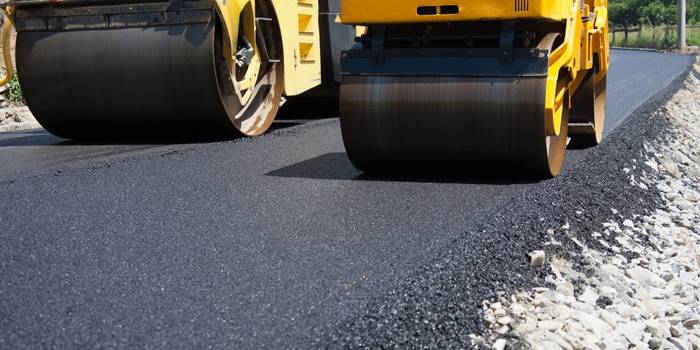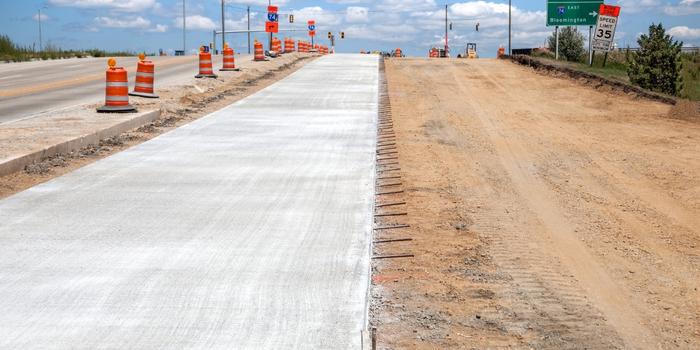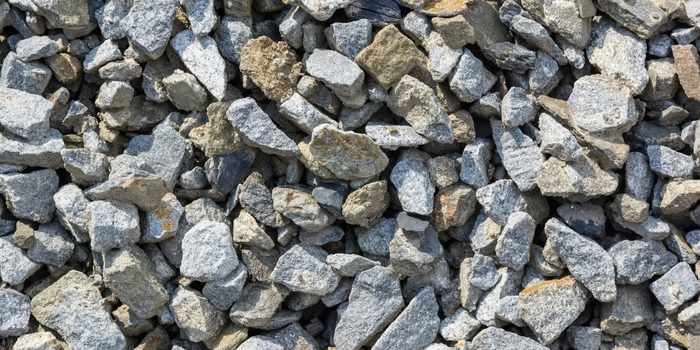Are you building new roads or you need to upgrade an existing one? If yes, then you have to choose either asphalt or concrete road for your project.
Actually, both are commonly used materials in construção de estradas. We will guide you on how asphalt and concrete roads are unique in terms of cost, maintenance, and performance.
What Is Asphalt Road?
The asphalt road is a type of road that has a smooth and dark surface. Majorly, you will see asphalt-made roads in cities and streets where traffic is heavy. These are popular road types because they are quick to construct. If they get damaged, you can repair asphalt roads easily.

How Asphalt Roads Are Made?
These roads are made by a mixture of bitumen and aggregates (sand & gravel). Workers prepare the ground and then spread the asphalt mixture over the surface. You can use machines to roll and compact the road for a smooth and strong road.
Concrete Road Meaning
A concrete road is a road built with a hard and light-colored surface. When you drive over these roads, you will feel rigid under your vehicle tires. You will often see them on highways, airports and busy streets where durability is important.

How Concrete Roads Are Made?
Concrete roads are made by a combination of cement with sand, gravel and water. Actually, the cement will act as a binder that holds everything together. This mix is then installed and shaped to create a hard and solid road surface.
Difference Between Asphalt and Concrete Roads
Asphalt and concrete both are widely used for building roads. However, they differ in many important ways and have unique features.
| Pontos principais | Estradas de asfalto | Concrete Roads |
| Material Composition | Bitumen, aggregates and has flexible pavement | Cement, sand, coarse aggregates and water (rigid pavement) |
| Construction Time | Quick to build | Require longer time for construction |
| Custo | Cheaper to construct initially | Initial cost is high but long lifespan saves your money later |
| Durabilidade | 15-30 years | 25 to 50 years |
| Resistance To Oil | Weak against oil/fuel spills | Resistant to oil/fuel leakage and damage |
| Impacto Ambiental | Releases harmful gases | More eco-friendly and reduce haet |
| Traffic Resilience | They can handle traffic well but may weak under heavy load | More strong against heavy load and ideal for buses and truck |
| Water Resistance | Water can cause potholes and cracks | Heavy resistant bailey to water damage |
| Maintenance Requirements | Needs more care (patching, resurfacing after every few years) | Few repairs required and can stay long without maintenance |
| Segurança | Smooth for driving but risky due to potholes/cracks | Gives you stronger grip and good visibility |
| Thermal Stability | Asphalt surfaces can’t handle temperature variations | They can perform better in both hot & cold conditions |
| Noise Level | Reduces tire noise and more comfortable ride | Louder and its rough surface reflects more sound |
| Color & Texture | Dark/black surface with smooth texture | Light gray, rougher texture and can be customized with colors |
Material Composition
Asphalt roads contain bitumen (binder) and aggregates such as crushed stone, sand and gravel. The bitumen acts as a binding agent, which creates a flexible pavement.
Concrete roads consist of cement, sand, coarse aggregates (gravel/crushed stone) and water. You can also add extra materials to improve the durability of the road. With cement, you will get a rigid pavement once it hardens.

Construction Time
You can build asphalt roads in less time because you can set materials quickly. Additionally, you can use the asphalt path for driving after a few hours of its construction.
On the other hand, concrete roads take more time for construction. The reason is that its materials need many days to set properly. That means, you may face long delays to build these roads as compared to asphalt routes.
Custo
When we compare asphalt and concrete roads in terms of its construction price, asphalt roads are less expensive to construct. Initially, it is the most cost-effective option for you due to its materials and building process.
However, concrete roads have high construction costs. Because it requires strong materials and more labor during building, they may cost you more at first but its long lifespan will save your money over time.
Durabilidade
Asphalt roads are less durable (15 to 30 years) because they can be damaged by heavy traffic and extreme weather. You may need to fix them such as patching small areas and new surface layer replacement.
But, concrete can stay in good condition for many years (25 to 50 years) without major damage because it can handle heavy loads and harsh conditions.
Resistance To Oil
Roads made of asphalt are less resistant to oil and fuel spills. That means, if oil stays on the road surface and bitumen is exposed to fuel, it will soften and cause severe damage.
Concrete roads can last longer where oil/fuel spills are common because oil doesn’t react with concrete. That’s why you mostly see concrete roads at gas stations, airports, and busy highways.
Impacto Ambiental
Asphalt roads can have a negative impact on your surroundings. They release toxic gases when made which harm air quality and may lose straight in heat.
In contrast, concrete roads are more eco-friendly for your environment. Because they last longer and need fewer repairs. They also reduce heat and reflect more lights, which make it an ideal choice.
Traffic Resilience
Asphalt roads handle traffic well but may wear faster under heavy loads. You may see cracks, ruts and potholes when traffic is very high on these roads.
However, concrete roads can manage the heavy vehicle loads better. You can easily drive your trucks and buses on concrete-made surfaces. Its hard structure protects it from bends and loose shapes.

Water Resistance
Generally, water can be a big problem for asphalt roads. When it slips inside, you will see cracks and potholes on its surface.
In comparison, concrete roads react differently to water. They stand up better to rain and don’t get affected as fast. That’s why you find concrete roads in places where heavy rain or flood ratios are high.
Maintenance Requirements
Asphalt roads demand more care over time. You may have to fix cracks, fill potholes and install new surfaces after every few years.
As we mentioned, concrete roads can stay strong for a long time and you only have to do small repairs. Because of this property, you don’t have to spend as much time or money on its maintenance.

Segurança
Asphalt made roads give you smoother and quieter rides. But you may find asphalt slippery when it’s hot or wet. When you drive your vehicle on it, the presence of potholes on the surface will be dangerous for you.
On concrete roads, your vehicle will have a stronger grip. You can also see better at night while driving at night because these roads reflect more lights.

Thermal stability
Asphalt roads can get soft at high temperatures. Plus, you will see cracks on its surface when the weather is very cold.
If we talk about concrete roads’ stability to heat and low temperatures, their performance is better than asphalt. These roads can stay strong in both conditions. Hence, concrete roads are reliable for you in areas where the temperature is extreme.
Noise Level
The smooth surface of asphalt roads reduce your car tire noise so they are quieter and comfortable. As a result, you will notice less sound when you drive on asphalt as compared to concrete roads.
Concrete roads produce high noise when you drive heavy vehicles on it. Their rigid and rough surface reflects more sound.
Color & Texture
You can identify the type of road easily by its color and surface. For example: asphalt roads are dark in color (also called blacktop) and have a smooth texture. You can observe its black surface even from a distance.
Concrete roads are light gray and have a rough texture. This texture gives better grip for your automobiles but may feel less smooth under tires. But you should remember that concrete also has many colors and textures. This mainly depends on the materials you mix into it.
Advantages and Disadvantages of Asphalt Roads
You will see asphalt roads almost everywhere you go due to their exceptional properties. Following are major benefits of asphalt surface.
- Easy to Construct: It’s easier for you to build asphalt roads. Because you can lay them down faster than concrete roads. There is no need for any professional building equipment.
- Quick & Simple Repairs: When they are damaged, you can fix them. Moreover, You can also repair cracks and potholes without much delay.
- Flexible and Adaptive: Asphalt roads can handle uneven ground and small cracks better. They can bend and flex under heavy traffic.
- Comfortable Ride: With asphalt roads, you will have a smooth and quiet ride. Their even surface reduces bumps and vibrations.
- Low Light Reflection: Due to its black camadas de pavimento, they can absorb light instead of reflecting it. Hence, you will notice less glare and see clearly at night while driving.
Along with its good properties, asphalt roads also have some drawbacks. Asphalt roads can’t handle water, so rain weakens its surface and causes cracks. That is why these routes require more maintenance. You may need to repair asphalt roads frequently.
Plus, they can get soft in high temperatures, slippery when wet and not eco-friendly. This can be risky for drivers. Asphalt surface also has a shorter lifespan than concrete. As a result, you need to replace them sooner in busy and harsh areas.
Pros and Cons of Concrete Roads
Below are some benefits of concrete roads that make them your ideal choice for areas with busy traffic.
- Long Life Span: Concrete roads have a long-lasting property without major repairs. You don’t have to worry about resurfacing it, so you can prefer concrete for highways and busy routes.
- Low Maintenance: You only need to pay very little attention to its maintenance. You will rarely find cracks and potholes. This saves your money and effort over the year.
- Resistant to Water & Temperature: It has a good ability to handle water and weather damage. In this way, you can drive safely in rain or extreme temperatures.
- Low Cost: Concrete roads have high initial cost but it is an economical option for you in the long term.
- Load-Bearing Capacity: They can carry heavy vehicles’ load without damage. Trucks, buses and constant traffic don’t weaken them quickly. This makes them reliable for your busy highways.
When you drive over a concrete surface, you will feel noise and bumps. You have to fully remove the damaged surface for its fixing. Additionally, many joins make construction and maintenance hard for you.
White concrete reflects a lot of sunlight, which is not safe during the day driving. This is the reason, many highways prefer asphalt instead of concrete.
Can You Sealcoat Concrete?
You should shield concrete made surfaces such as driveways and floors. Because it provides protection from water, ice, oil and chemicals that can cause damage. When you seal concrete roads, it also improves its surface look.
Can Asphalt Surfaces Be Protected With Sealcoat?
Absolutely yes. You can protect asphalt roads with a pavement sealer. It will form a protective layer that prevents it from water, oil and sun damage. In such a way, it will also extend your road’s life and keep it looking smooth and dark.
Are Most Roads Asphalt or Concrete in the world?
Many roads around the world are made of asphalt because it is cheaper, quicker to build, and easier to repair than concrete.
However, concrete is used mainly for highways, busy streets, and heavy-traffic areas where durability is more important for you. But we can say that asphalt is still the main choice for most roads everywhere.
Our Final Advice
So, asphalt or concrete roads? Basically, the right choice depends on your project requirements, budget as well as location. You can see asphalt is smooth and quick to build, while concrete is strong and lasts longer.
We recommend that you compare the properties of both and then go for the most suitable option. If you have any confusion, you can Contate-nos. Our experts will guide you with the right solution based on your project needs.
More Helpful Sources:
7 Steps to Sealing Concrete Like a Pro (Expert How-To Guide)
Dimensões de estradas: mais de 15 tipos de estradas e seus padrões de largura


-80x69.png)

